The first step in quitting alcohol or drugs should always be a safe medical detox. Quitting drinking or anything else ‘cold turkey’ is a mistake. A medical detox isn’t just far more comfortable, it’s also much safer.
What happens after your detox from alcohol or opioids is over though? The temptation for many people is to get back to work and family right away. But, this often means taking unnecessary risks with your health and hurts your chances of long-term sobriety.
This Clear Path Recovery Center article will help you decide if detox alone is enough for you or the one you love.
Detox vs. Inpatient Rehab: What’s the Difference?
You can think of medical detox as your body’s spring cleaning after years of junk piling up. Over a gentle week or so, our medical team helps your system sweep out toxins, keeps an eye on your blood pressure and heart rate, and offers medication to ease any shakes, sweats or other symptoms. With Clear Path’s around-the-clock detox nursing, you or your loved one are always attended to.
After medical detox is completed, you have the choice to progress to inpatient rehab, also called residential. This phase of addiction treatment focuses on helping you understand your addiction so you can begin to change behavior patterns.That’s why most folks need more than just willpower—going cold turkey rarely beats drugs, pain pills, meth, or whichever monkey’s on your back. It does not mean you lack strength or character—it just means you’re human.
Detox vs Inpatient Rehab (Residential):
- Medical detox treats the body.
- Residential rehab treats the mind.
- Medical detox helps you become drug-free and sober.
- Residential treatment helps you stay that way.
The Limits of a Detox-Only Approach to Addiction
A medical detox makes it possible to stop drinking or taking pills or other substances more safely. Our Clear Path detox nurses can relieve withdrawal symptoms and administer medicines to help you get the rest you need. But, this is about as far as an alcohol or drug detox can go.
You may receive some therapy while in detox or attend groups once you’re feeling up to it. But, remember: We don’t become addicted overnight. We can’t expect to get sober and hold onto recovery after just a week or so of drug and alcohol treatment either.
When is detox-only treatment not enough?
- When you’re facing psychological addiction, not just physical dependence.
- If you’ve tried quitting (or quit) before, but relapse occurred.
- When you rely on drugs or alcohol to deal with stress or get through the day.
- If you have co-occurring issues like depression or anxiety.
- When you have doubts about your ability to stay drug-free and sober.
How Does Inpatient Rehab Help You Stay Sober?
Inpatient rehab helps you stay sober and drug-free by giving you time and tools to manage your emotions and change your thinking. When you do that—you can change your behaviors, and that’s what recovery is all about!
Addiction has two main parts.
- The craving for a drug or a drink for your body to ‘feel OK’.
- The mental desire for a drug or drink for your mind to ‘feel OK’.
Medical drug detox can handle the first part, and MAT meds like buprenorphine (Suboxone) can help you manage cravings. But, the mental health side of addiction is about how we feel, what we think and how we act (behaviors). There’s no magic pill for that.
Inpatient rehab at a dual-diagnosis treatment center like Clear Path gives you the therapy and healthy coping tools you need to change not just your body, but your mind. This is no small task. Research shows that it takes at least 30 days for most people to establish a new habit. That’s one of the reasons why residential alcohol and drug treatment lasts about that long (or longer).
How Inpatient Rehab Helps You Stay Drug-Free and Sober:
- Evidence-based therapies (CBT, DBT): learning about yourself
- Addiction education: learning about your substance use disorder.
- Life-skills training: coping strategies, communication, self-care.
- Aftercare and discharge planning: a roadmap for your recovery after rehab.
How to Choose the Right Addiction Treatment Option
Deciding to get help for addiction is no small thing. For many folks, it’s one of the biggest moves they’ll ever make. Recovery has a way of changing everything: your health, your relationships, your future.
It’s normal to feel a little overwhelmed by all the options out there. Detox, inpatient rehab, outpatient care. It can be a lot to ponder, especially if you or a loved one is in real trouble.
Try to remember that this decision isn’t just about what you’re leaving behind. It’s about what you’re moving towards. Choosing treatment means choosing health, healing, and renewal. That’s something worth having hope about.
If you’re considering an alcohol or drug detox, and that’s where most people start, then it’s worth looking at programs that also offer residential rehab under the same roof. Why? It’s simple, when the people taking care of you already know your story, your needs, and your progress, you don’t feel like you’re starting over. Instead you’re building momentum. That’s called continuity of care, and it really does make a difference.
How to choose the right addiction help:
- First things first: You need a safe and comfortable medical detox.
- Ideally, choose a detox that has residential treatment within the same program.
- If you have any specific issues, like trauma, check with the facility to confirm they treat it.
- If you may have depression or another mental health challenge, choose a dual-diagnosis program
- Trust your instincts: Do the admissions folks give you a good feeling? Are they knowledgeable? Did they answer your questions satisfactorily?
The Clear Choice for Substance Use Disorder Treatment in Missouri.
Clear Path Recovery Center is proud to serve Missouri with compassionate, high-quality addiction treatment. We know how important it is to act when someone’s ready for help—willingness can be brief, and timing matters. There’s no time to waste, we’re ready when you are.
Our program offers detox and residential care under one banner, so you don’t lose momentum between stages. That kind of continuity helps people stay focused and supported through every step.
We’re grateful you’re here, and we’d be honored to play a part in recovery for you or your loved one.If you have any questions about detox, treatment or addiction, please call us at (417) 448-6488


